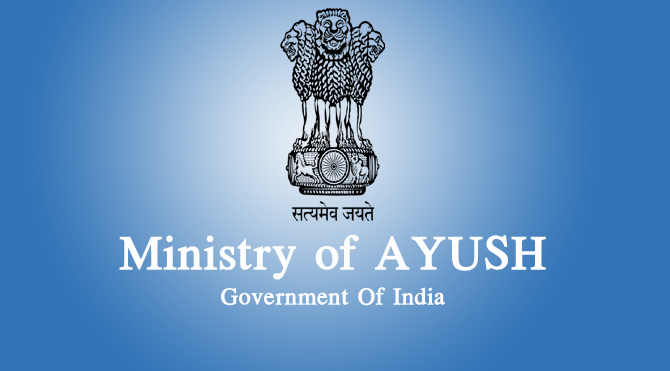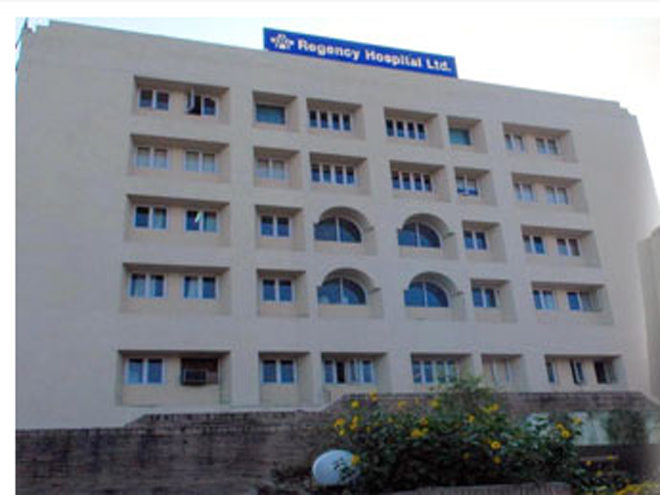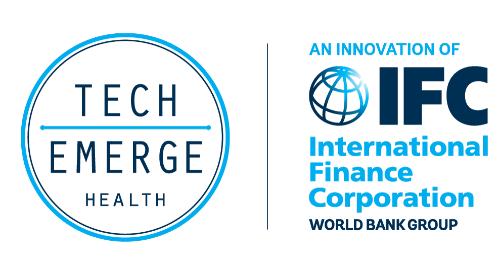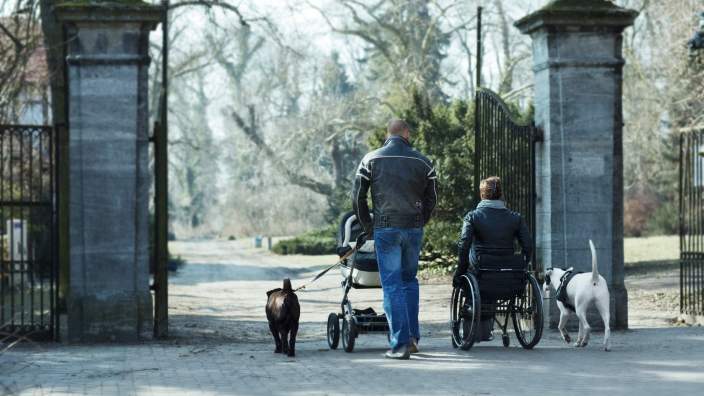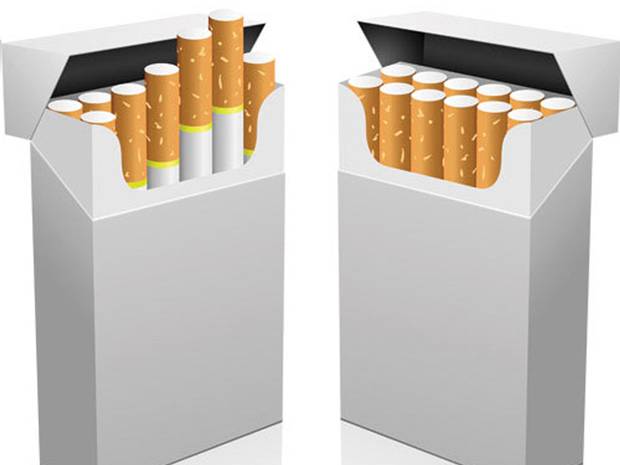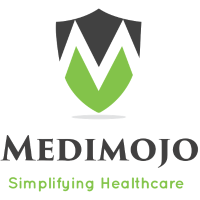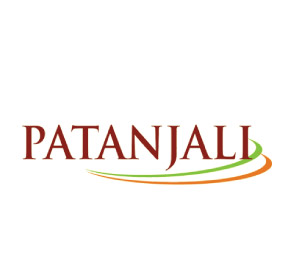
The Rajasthan Government has efficiently made a benchmark to provide comprehensive healthcare services to the people of the state. Kartik Sharma and Romiya Das of Elets News Network (ENN) explore Rajasthans active adoption and implementation of the latest technology for the betterment of the state healthcare services.
 Rajasthan is the largest Indian state constituting 10.4 per cent of geographical area of the country and accounting for 5.67 per cent of the population of India. The geographic vastness makes it a colossal task to provide proper healthcare delivery to both rural and urban population. But, with the implementation of various progressive initiatives and schemes, the state government has escalated the health index of the people. The Government isworking in Public-Private-Partnership (PPP) to provide proper healthcare delivery to improve health conditions of women and child, and also improving the nutrition status. Recently, the government decided to hand over all the Primary Health Centres (PHCs) to private players to strengthen the health services in rural areas by giving approval to run all the 2,084 health centres under PPP.
Rajasthan is the largest Indian state constituting 10.4 per cent of geographical area of the country and accounting for 5.67 per cent of the population of India. The geographic vastness makes it a colossal task to provide proper healthcare delivery to both rural and urban population. But, with the implementation of various progressive initiatives and schemes, the state government has escalated the health index of the people. The Government isworking in Public-Private-Partnership (PPP) to provide proper healthcare delivery to improve health conditions of women and child, and also improving the nutrition status. Recently, the government decided to hand over all the Primary Health Centres (PHCs) to private players to strengthen the health services in rural areas by giving approval to run all the 2,084 health centres under PPP.

The state government has implemented various schemes to bring down the Infant Mortality Rate (IMR) and Maternal Mortality Ratio (MMR), providing universal access to public health services, prevention and control of communicable and non- communicable diseases etc. Under the maternal health interventions, there is a reduction of 144 points in MMR from 388 [Sample Registration System (SRS), 2004-06] to 244 (SRS, 2011-13) in Rajasthan and rise in the institutional delivery from 30 per cent in FY 2005 to 78.0 per cent in year 2012 (as Annual Health Survey, 2012). Schemes such as the Janani Shishu Suraksha Yojana (JSSY) launched on 12 September 2011 entitles all pregnant women free deliveries including caesarian section with zero out of pocket expenses, accessing public health institutions. As the neonate mortality contributes approximately 75 per cent of IMR, therefore this group of children are provided free of cost facility for investigations, treatment, medicines and any referral facility from home to facility and back home facility.
 The benefits of these schemes have been well-documented and results are seen in the improvement of healthcare services amongst women and children in the state. In FY 2014-15, 11,90,738 pregnant women were provided free medicines, 9,72,194 pregnant women were benefitted with free lab tests, 8,82,333 availed free hot food, free referral transport from home to health availed by 7,09,658 pregnant women, 61,303 pregnant women availed free blood transfusion facility; 2,02,343 sick infants received free medicine, 1,09,651 received free lab tests, 25,693 and 40, 298 women received free referral transport from home to health facility and health facility to home, 4, 065 sick neonates availed free blood transfusion facility. Under the scheme of Janani Suraksha Yojna (JSY) 13.50 lakh institutional deliveries were conducted against the target of 17.86 lakh (75.58 per cent) as per FY 2014-15 and 11.28 lakh deliveries conducted at public institutions and JSY accredited private intuitions providing benefit to 10.87 lakh (96.38 per cent) mothers in the state.
The benefits of these schemes have been well-documented and results are seen in the improvement of healthcare services amongst women and children in the state. In FY 2014-15, 11,90,738 pregnant women were provided free medicines, 9,72,194 pregnant women were benefitted with free lab tests, 8,82,333 availed free hot food, free referral transport from home to health availed by 7,09,658 pregnant women, 61,303 pregnant women availed free blood transfusion facility; 2,02,343 sick infants received free medicine, 1,09,651 received free lab tests, 25,693 and 40, 298 women received free referral transport from home to health facility and health facility to home, 4, 065 sick neonates availed free blood transfusion facility. Under the scheme of Janani Suraksha Yojna (JSY) 13.50 lakh institutional deliveries were conducted against the target of 17.86 lakh (75.58 per cent) as per FY 2014-15 and 11.28 lakh deliveries conducted at public institutions and JSY accredited private intuitions providing benefit to 10.87 lakh (96.38 per cent) mothers in the state.
 Talking about the child health interventions, the state has brought down the IMR from 63 (SRS, 2008) to 47 (SRS, 2013) which depicts a reduction of 14 points in the IMR. At district and medical colleges level, 12 bedded Special Newborn Care Units (SNCU) were established to provide curative services to neonates. At present, 36 FBNCs are operational in Rajasthan. In FY 2014-15, around 61,570 children were treated in these units. Rajasthan is the first state to establish SNCUs at all district hospitals. For the management of severely acute malnourished children 40 Malnutrition Treatment Corners (MTCs) are established at the level of district hospitals, medical colleges and identified sub-district hospitals. 51 MTCs have been operationalised at CHCs against target of 100. At CHCs level, 140 Newborn Stabilization Units are functional in the state, whereas at community level Home Based Natal Care (HBNC) scheme provides for immediate postnatal care and essential newborn care to all newborns up to the age of 42 days. AHAs are being trained and incentivised to provide special care to preterm and newborns. They are also being trained in identification of illness, appropriate care and referral through home visits. 42,638 ASHA-Sahyogini are trained in 6th and 7th modules after selection. Under the HBNC programme home visits are given to 6.11 lakh beneficiaries.
Talking about the child health interventions, the state has brought down the IMR from 63 (SRS, 2008) to 47 (SRS, 2013) which depicts a reduction of 14 points in the IMR. At district and medical colleges level, 12 bedded Special Newborn Care Units (SNCU) were established to provide curative services to neonates. At present, 36 FBNCs are operational in Rajasthan. In FY 2014-15, around 61,570 children were treated in these units. Rajasthan is the first state to establish SNCUs at all district hospitals. For the management of severely acute malnourished children 40 Malnutrition Treatment Corners (MTCs) are established at the level of district hospitals, medical colleges and identified sub-district hospitals. 51 MTCs have been operationalised at CHCs against target of 100. At CHCs level, 140 Newborn Stabilization Units are functional in the state, whereas at community level Home Based Natal Care (HBNC) scheme provides for immediate postnatal care and essential newborn care to all newborns up to the age of 42 days. AHAs are being trained and incentivised to provide special care to preterm and newborns. They are also being trained in identification of illness, appropriate care and referral through home visits. 42,638 ASHA-Sahyogini are trained in 6th and 7th modules after selection. Under the HBNC programme home visits are given to 6.11 lakh beneficiaries.

To protect the overall child health, the state government initiated Rashtriya Bal Swasthya Karyakaram (RBSK) scheme under which all the children of Anganwadi Centres (0-6 yrs) and school going children up to 18 years will be screened for four Ds- Defects at birth, Diseases, Deficiencies, Developmental delays and Disabilities (30 identified illnesses) through dedicated Mobile Health Team. If a child is screened with any identified 30 diseases, he would be given free referral and follow-up, and surgical treatment if required. At present the scheme is initiated at divisional head quarter districts (Ajmer, Bharatpur, Bikaner, Kota, Jodhpur, Jaipur-I, Jaipur-II and Udaipur) and nine high priority districts and three tribal districts (Banswara, Baran, Barmer, Bundi, Dholpur, Dungarpur, Jaisalmer, Jalore, Karoli, Rajsamand, Pratapgargh and Sirohi) from 14th November 2014. Around 250 Mobile Medical Teams are constituted in these 20 districts. Till March 2015, 21.04 lakh children were screened, 1.16 lakh children were referred to higher health facilities and 41,457 were treated. The Rajasthan government also initiated Rashtriya Kishore Swasthya Karyakram (RKSK) to address the health of adolescents.
To strengthen the emergency referral transport services the Rajasthan government incorporated 108 toll free ambulance yojana which is a free emergency response services to the people of Rajasthan started in September 2008. A present, 741 ambulances are working in 249 blocks of 33 districts in entire state. In FY 2014- 15, 7,58,970 medical, 18,193 police, 42 fire cases and 2,04,619 pregnant women were provided services through 108 ambulances. Another helpline toll free 104 medical advice service was declared in budget announcement 2011-12 and was launched on 16th January, 2012 in the state. 104 toll free medical advice service is not only a new initiative under NHM, but it is a unique service which is being provided for the first time to the citizens of Rajasthan. It is a medical helpline which provides medical advice, counseling, information directory services and many more health related information, says Priyanka Kapoor, Consultant Intersectoral Convergence. The scope of service is also enhanced with addition of dispatch of 104 Janani Express vehicles, complaint registration related to sex selection, information related to malnutrition etc. Till March 2015, 18.79 lakh calls were given services under this scheme since its launch. In addition, this service is also being used for registering complaints for illegal determination of sex, medical counseling of tobacco users and imparting information of malnutrition.
Reaching Out
There are many areas in the State, especially the tribal, the desert and inaccessible areas where basic healthcare infrastructure is not up to the reach of poor especially women and children. To overcome this problem, Rajiv Gandhi Rural Mobile Medical Unit (MMU) was launched in May 2008 throughout the state. There are two vehicles in each MMU comprising of a staff vehicle and a diagnostic van which contains modern instruments and equipments such as ECG machines etc. Out of 52 MMUs proposed to be deployed, at least one for each district and two or more for the desert, tribal and border districts 49 units have been made fully functional with both staff vehicles and diagnostic vehicles. During FY 2014-15, 26,322 camps were held and 12,42,775 patients were treated.
 Addressing the declining sex ratio the government launched the Mukhaya Mantri Shubh Laxmi Yojna scheme on April 1, 2013 in entire State to promote girl child birth and to reduce maternal mortality ratio. Under this scheme, an ncentive of Rs 2,100 is given to mother on delivery at government and private accredited health institutions other than JSY incentive. Amount of Rs 2,100 is given after one year of age on complete immunization of the girl child and Rs 3,100 is given after five years of age at the time of admission in school. Thus, a woman can get monitory benefit of Rs 7,300 for her girl child in addition to JSY benefitted of Rs 1,400 in rural and Rs 1,000 in urban areas. Around 4,91,219 girls benefitted in FY 2014-15 under this scheme.
Addressing the declining sex ratio the government launched the Mukhaya Mantri Shubh Laxmi Yojna scheme on April 1, 2013 in entire State to promote girl child birth and to reduce maternal mortality ratio. Under this scheme, an ncentive of Rs 2,100 is given to mother on delivery at government and private accredited health institutions other than JSY incentive. Amount of Rs 2,100 is given after one year of age on complete immunization of the girl child and Rs 3,100 is given after five years of age at the time of admission in school. Thus, a woman can get monitory benefit of Rs 7,300 for her girl child in addition to JSY benefitted of Rs 1,400 in rural and Rs 1,000 in urban areas. Around 4,91,219 girls benefitted in FY 2014-15 under this scheme.
The government will also be distributing free sanitary napkins to about 20 lakh adolescent girls of the age group 13-19 years, studying n class six to 12th standard under Rajasthan Kishori Swasthya Evum Swachhata Karyakram in the state.
eInitiatives
In the last few years Information Technology in health sector has been a major focus of healthcare industry and is bound to continue as the industry strives to automate medical records, improve electronic reporting, simplify daily work flows and increase cost savings by streamlining work efforts. Therefore IT is a promising tool in healthcare that can provide new ways to healthcare providers to collect, store, retrieve and transfer information electronically. In this regard, National Health Mission has taken up few e-initiatives and implemented them successfully.
Integrated System for Monitoring of PCPNDT Act (IMPACT) Software
provides the online form F for center registered to report to appropriate authority. Form F of every woman whose sonography test is conducted is being reported online by every centre. All sonography centres in the state have been enrolled with the Medical, Health & Family Welfare department and details are available in the software. It provides online surveillance system of government for prevention of sex determination to save girl child. The web based Software IMPACT was launched on October 1, 2012 by the Medical Health & Family Welfare department.
ASHA Soft is an online system which facilitates the health department, to capture beneficiary wise details of services given by ASHA to the community. It also provides online payment of ASHA to their bank accounts and calculation of total incentive given will be in accordance with the actual health services provided, which will help in strengthening of monitoring and management of physical & financial progress. Under National Health Mission, Rajasthan, the responsibility for preparing ASHA Soft has been assigned to NIC unit of Rajasthan State for the cooperation of which ASHA Soft Core Group has been constituted under the directions of Mission Director, which is working on the progress of this software with the coordination of NIC. Till date the profiles of all the working ASHAs have been prepared along with the work plan.
e-Aushadhi is a web-based application which deals with the management of stock of various drugs, sutures and surgical items required by different district drug warehouses of Rajasthan. e-Aushadhi helps in ascertaining the needs of various district drug warehouses such that all the required materials, drugs are constantly available to be supplied to the user district drug warehouses without delay. This includes classification or categorisation of items, codification of items, etc. The prime objective of a District Drug Warehouse is to supply drugs to the various medical institutes that are associated with the given district drug warehouse.
Pregnancy, Child Tracking & Health Services Management System (PCTS) is a online software used as an effective planning and management tool by Medical, Health & Family Welfare department, Government of Rajasthan. The system maintains online data of more than 13,000 government health institutions in the state. This software helps in tracking of pregnant women for better health surveillance; it is a useful tool for improving institutional delivery. It also helps in tracking BPL and JSY cases.
Arogya Online Project is an e-Health initiative to automate the hospitals in the state to improve the patient care. It is an electronic management of health information to deliver safer, more efficient, better quality healthcare to the citizens of the state. This initiative facilitates the transition of paper-based clinical record keeping to electronic means for better information exchange. It is designed to provide the highest level of flexibility and operational efficiency for a hospital. The Arogya Online streamlines work-flows operations, resource utilisation and management to improve hospital administration,enhances the quality of patient care, creates platform for information exchange, end to end supply chain management within the system, unique modular design structure of application to enhance operational flexibility, the system performs complex tasks like investigation billing, bed management, and various other related activities.
Saghan Nirikshan Abhiyaan is an designed institution-wise check list to identify the gaps in the health services at the health institution. This initiative gives access to information anywhere and anytime, direct and effective monitoring of progress, better planning and decision making, identification of gaps in health facilities, infrastructure and also in identifying best health institutions.
Computerized Human Resource Information System (CHRIS): It is an integrated streamlined system to keep the employee data. This secured web- based system which contains complete information of all contractual or permanent stall and can be managed. It also provides real time status of HR for instance vacant or filled positions etc.
nd paramedical etc). In order to facilitate the establishment of quality health institutions within the framework of set standards and norms, the government seeks participation from the private sector for qualitative healthcare delivery. The state has the potential of extending its tourism into medical tourism with its RIPS (Rajasthan Investment Promotion Scheme)-2014, offering concessions and tax benefits for such investments.
The state government aims to develop complementary and alternative medicine centres, super specialty healthcare institutions to ensure qualitative delivery of healthcare at pocket-friendly cost. The government also promotes development of centres of excellence for medical care, investment of private sector in medical healthcare institutions and support units (diagnostic centres, blood banks and paramedical training institutions), and promotion of medical tourism.
With all these initiatives in place, healthcare system in Rajasthan has set an example for other states to follow.
Couple Tracking System (ECTS), Health Management Information System (HMIS), Rajasthan Janani Shishu Suraksha Yojna (RJSSY) Software, e-Shubhalaxmi Yojna.
The government has also incorporated the use of M-app (Whatsapp) for better communication and effective governance. It has come as a ready solution for mode of communication with various cadres for getting various activities done such as sending circulars, replying to common grievances, calling for meeting or giving notice, sharing feedback on trainings and discussing logistic problems in programmes etc.
The Government of Rajasthan is aggressively promoting Medical and Healthcare sector, also offering an opportunity for the private sector to invest in medical and healthcare institutions (medical, dental and paramedical etc). In order to facilitate the establishment of quality health institutions within the framework of set standards and norms, the government seeks participation from the private sector for qualitative healthcare delivery. The state has the potential of extending its tourism into medical tourism with its RIPS (Rajasthan Investment Promotion Scheme)-2014, offering concessions and tax benefits for such investments.
The state government aims to develop complementary and alternative medicine centres, super specialty healthcare institutions to ensure qualitative delivery of healthcare at pocket-friendly cost. The government also promotes development of centres of excellence for medical care, investment of private sector in medical healthcare institutions and support units (diagnostic centres, blood banks and paramedical training institutions), and promotion of medical tourism.
With all these initiatives in place, healthcare system in Rajasthan has set an example for other states to follow.
Be a part of Elets Collaborative Initiatives. Join Us for Upcoming Events and explore business opportunities. Like us on Facebook , connect with us on LinkedIn and follow us on Twitter , Instagram.



